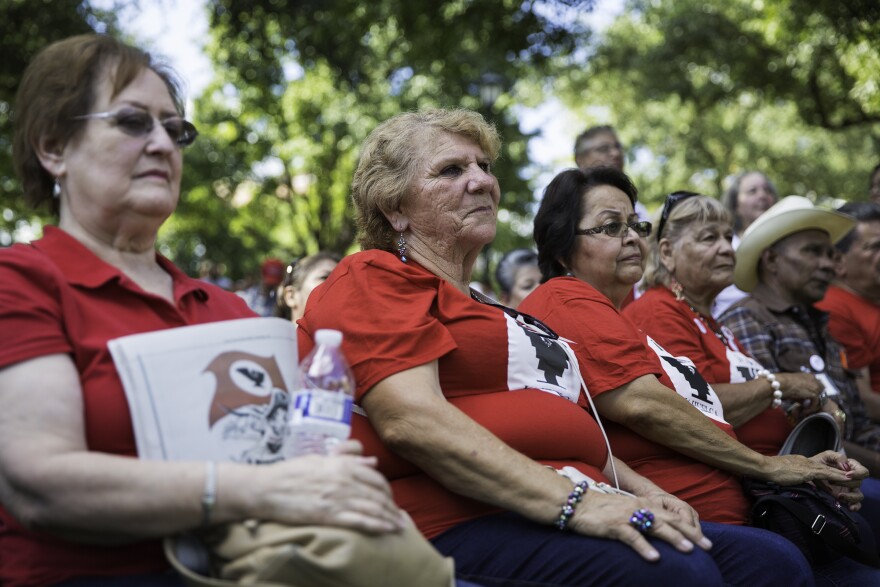Fifty years ago this month, a small group of farmworkers and their supporters arrived in Austin after marching nearly 500 miles from the Rio Grande Valley to Austin. That event 1966 has come to mean different things to different people, and a march on Sunday reflected on the half-century anniversary.
Daria Vera was one of the original marchers from the Rio Grande Valley. On the Texas State Capitol grounds on Sunday, she said the reason for the march was simple.
“What we wanted was better pay,” Vera said in Spanish. “Because they paid us 40 cents an hour.”
The workers wanted then-Gov. John Connolly to call a special legislative session to make lawmakers pass a minimum wage law, giving farmworkers $1.25 an hour – three times what Daria Vera was earning.
"What they did with that, with their bodies, it showed the rest of us that we could do something."
Rebecca Flores was 23 years old at the time. She watched coverage of the march in the news. Her parents had been farmworkers.
“The feat of these farmworkers who walked 490 miles in the hot summer, hot summer months of South Texas. What they did with that, with their bodies, it showed the rest of us that we could do something,” Flores said. “And, in fact, a lot of people started doing something.”
Flores quit her job, went back to college and became an organizer of farmworkers. In fact, she was the key organizer for events commemorating the 50th anniversary of the march.
Margaret Gomez also watched the 1966 march from the sidelines. Gomez, now a Travis County Commissioner, says she drew inspiration from the marchers.
“This march or this standing up by the farmworkers really signified to me, ‘Okay, we’re getting there,’” Gomez said. “Instead of all of it just being talk, some people were actually brave enough to stand up and say, ‘Ya Basta.’”

The march has been called the “Rosa Parks moment” for Mexican-American civil rights. But that has more to do with what happened in New Braunfels. Efrain Carrera was also one of the original marchers.
“On the way to Austin, Texas, they were met by then-Gov. John Connolly,” Carrera told the crowd at the state capitol. “The marchers were told by Gov. John Connolly that he would not meet with the marchers, that he would not accept them at the state capitol.”
In 1966, former State District Judge Bob Perkins was an incoming freshman at UT-Austin. Perkins was originally from Eagle Pass, and he was politically conservative at the time. He was appalled by Connolly’s actions. Perkins says that was the beginning of a political awakening for Mexican Americans – and for him.
“This really showed the Mexicanos that they could not trust the conservatives within the Democratic Party,” he said.
Perkins said his politics evolved and he became a liberal Democrat.
Farmworkers will continue to lobby the legislature this January. Their concerns now: migrant housing and sanitation facilities in the fields.




